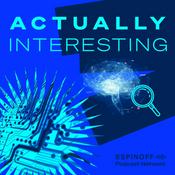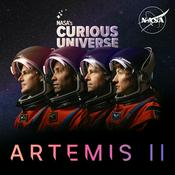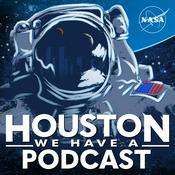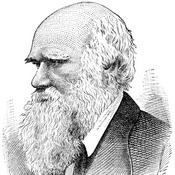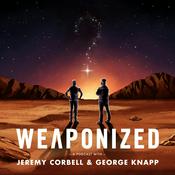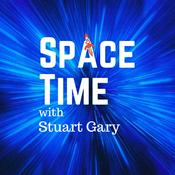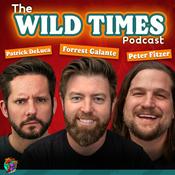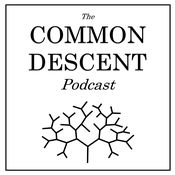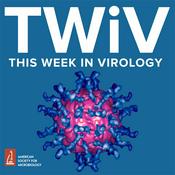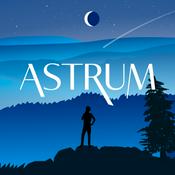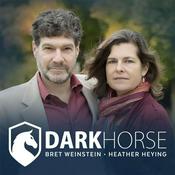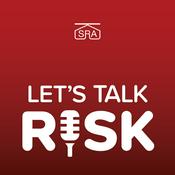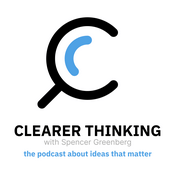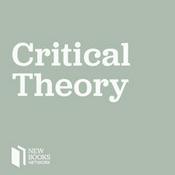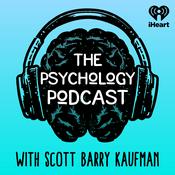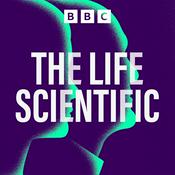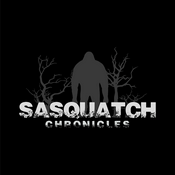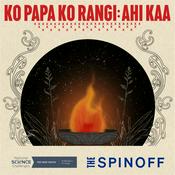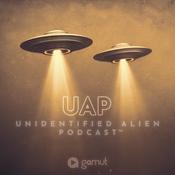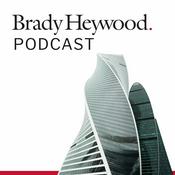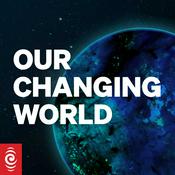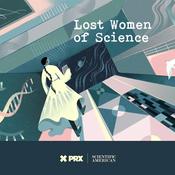13 episodes
- Everything is aggressively stupid and evil right now, so Lucy and I just talked about whatever we felt like for about an hour. With as few references to Elon Musk as we could manage. Need to tune your brain to TV static for an hour? This is the episode for you.
Energy drinks, television shows, AI slop, manosphere ghouls, edible books, biased steaks, and a sequel to the groundbreaking 2015 documentary Chappie.
CW: we do discuss briefly Criminal Minds, which is a pretty offensively shitty show about serial killers and sex criminals.
Please feel free to skip ~8-14 minutes in if you (understandably) don't want to hear about the television program Criminal Minds.
Working on the next proper Sludge episode too I promise <3
Supplementary materials:
Cathy Mitchell infomercials:
EAT THIS BOOK
https://www.youtube.com/watch?v=J1lZ44dQYmM
DUMP DINNERS
https://www.youtube.com/watch?v=SQB9ervDEEM
Dog listening to kalimba
https://www.youtube.com/watch?v=F4we73GHH9k - "I hope they are a little bit more than intrigued"
The fourth in our series on the environmental and humanitarian legacy of US uranium mines in The Navajo Nation. In this episode, we cover the 1950’s and 60’s. The Atomic Age promises endless energy and domestic convenience for middle-class white America, but is sustained Navajo miners and millers working long days in uranium mines at great expense to their long-term health and that of their families. Mining companies and government agencies fail to inform the Navajo community of the hazards for decades- until it is far too late to deny.
*Content warning* for upsetting content, discussions of illness, and reference to SA.
Learn more, donate, help out:
The Multicultural Alliance for a Safe Environment
“MASE is rooted in the experiences of uranium-impacted communities of the southwestern U.S. We are communities working to restore and protect the natural and cultural environment through respectfully promoting intercultural engagement among communities and institutions for the benefit of all life and future generations.”
Southwest Research and Information Center (SRIC, @SRICorg on twitter)
“In the late 1970s, Navajo uranium miners and their families asked for help to show that their lung diseases had been caused by their work in underground uranium mines in the 1940s-1960s. SRIC staff responded with medical and scientific data, in-community education strategies, and legislative support. As a result, Congress adopted legislation in 1990 to compensate former miners and their survivors. Ten years later, with SRIC's on going technical support to advocacy groups, the law was amended to cover virtually all uranium miners who worked before 1971. Currently, the Uranium Impact Assessment Program provides information on mining and community health, the legacy of uranium development, regulatory and policy issues related to remediation of contaminated sites, and current and proposed uranium development.”
Noel Lyn Smith at Inside Climate News (@nsmithdt and @insideclimate on twitter)
Noel Smith has written a ton of really informative pieces on the modern state of uranium mine cleanup in The Navajo Nation- highly recommend giving them a read.
Red Nation Podcast. Uranium Stories: the largest nuclear disaster in US history, 43 years later. Episode link on patreon here.
“The Red Nation Podcast features discussions on Indigenous history, politics, and culture from a left perspective. Hosted by Nick Estes and Jen Marley with help from our friend and comrade Sina. The Red Nation Podcast is also the home of Red Power Hour, hosted by Melanie Yazzie and Elena Ortiz. Our show is entirely supported by our patrons on Patreon, support the show and get access to bonus content and other patron-exclusive benefits here: Patreon.com/redmediapr”
Sources:
Brugge, Doug, Timothy Benally, and Esther Yazzie-Lewis, eds. The Navajo people and uranium mining. UNM Press, 2007.
Denetdale, Jennifer Nez. Reclaiming Diné History: The Legacies of Navajo Chief Manuelito and Juanita. University of Arizona Press, 2015.
Pasternak, Judy. Yellow dirt: A poisoned land and the betrayal of the Navajos. New York: Free Press, 2011.
Voyles, Traci Brynne. Wastelanding: Legacies of uranium mining in Navajo country. U of Minnesota Press, 2015.
Art and Music
Country music by Alex Black (science_party on instagram)
Ambient music by CALIFORNIA DEATH WORM (@grouchyjerk on twitter)
Cover art by Emily, check out her Etsy page at cicadaxxseason!
If you want to support the show and help pay for books and coffee, you can toss us a couple bucks at patreon.com/sludgefest. If not, no worries- all the eps are free :)
We’ll see you next time. Remember that despair is useless and I love you! - "Mean, bad man"
The third in our series on the environmental and humanitarian legacy of US uranium mines in The Navajo Nation. In this episode, we cover the years 1868-1960. The Navajo return home after being ethnically cleansed by the American military to Bosque Redondo. After losing nearly everything, they rebuild their lives, herds, and communities. The United States continues to attempt to forcibly assimilate the Navajo into the “American way” through through cruel boarding schools and draconian regulations on livestock. World War II, the Code Talkers, and the birth of the toxic uranium mining industry on Navajo lands.
Content warning for violence, upsetting content, and reference to SA.
Learn more, donate, help out:
The Multicultural Alliance for a Safe Environment
“MASE is rooted in the experiences of uranium-impacted communities of the southwestern U.S. We are communities working to restore and protect the natural and cultural environment through respectfully promoting intercultural engagement among communities and institutions for the benefit of all life and future generations.”
Southwest Research and Information Center (SRIC, @SRICorg on twitter)
Noel Lyn Smith at Inside Climate News (@nsmithdt and @insideclimate on twitter)
Noel Smith has written a ton of really informative pieces on the modern state of uranium mine cleanup in The Navajo Nation- highly recommend giving them a read.
Red Nation Podcast. Uranium Stories: the largest nuclear disaster in US history, 43 years later. Episode link on patreon here.
“The Red Nation Podcast features discussions on Indigenous history, politics, and culture from a left perspective. Hosted by Nick Estes and Jen Marley with help from our friend and comrade Sina. The Red Nation Podcast is also the home of Red Power Hour, hosted by Melanie Yazzie and Elena Ortiz. Our show is entirely supported by our patrons on Patreon, support the show and get access to bonus content and other patron-exclusive benefits here: Patreon.com/redmediapr”
Sources:
Unspoken: America's Native American Boarding Schools, PBS Utah, 2023.
Timestamps and names of speakers quoted in this episode:
Notation given as: speaker name; timestamp in podcast; timestamp in documentary
Forrest S. Cuch, Ute ; 7:40 ; 9:48
Harry Walters, Navajo Diné; 8:09 ; 10:19
Joseph Abeyta, Santa Clara Pueblo; 8:41 ; 10:50
Forrest S. Cuch, Ute; 9:07 ;14:43
Amanda Blackhorse, Navajo Diné; 9:27; 15:01
Forrest S. Cuch, Ute; 10:09 ; 15:43
Dr. Jennifer Nez Denetdale, Navajo Diné; 10:49 ; 16:24
Roy Smith, Navajo Diné ; 11:26 ; 19:41
Harry Walters, Navajo Diné; 11:54; 28:00
Carl Begay, Navajo Diné; 12:22 ; 28:23
Boissoneault, Lorraine. "A spoonful of sugar helps the radioactive oatmeal go down." Smithsonian Magazine (2017).
Denetdale, Jennifer Nez. Reclaiming Diné History: The Legacies of Navajo Chief Manuelito and Juanita. University of Arizona Press, 2015.
Nez, Chester, and Judith Schiess Avila. Code talker: the first and only memoir by one of the original Navajo code talkers of WWII. Penguin, 2011.
Pasternak, Judy. Yellow dirt: A poisoned land and the betrayal of the Navajos. New York: Free Press, 2011.
Welsome, Eileen. The plutonium files: America's secret medical experiments in the Cold War. Delta, 2010.
Voyles, Traci Brynne. Wastelanding: Legacies of uranium mining in Navajo country. U of Minnesota Press, 2015.
Art and Music:
Country music by Alex Black (science_party on instagram)
Ambient music by CALIFORNIA DEATH WORM (@grouchyjerk on twitter)
Cover art by Emily, check out her Etsy page at cicadaxxseason!
If you want to support the show and help pay for books and coffee, you can toss us a couple bucks at patreon.com/sludgefest. If not, no worries- all the eps are free :)
We’ll see you next time. Remember that despair is useless and I love you! - "Soup Will Be Your Salvation"
The second in our series on the environmental and humanitarian legacy of US uranium mines in The Navajo Nation and abroad. Before we talk about the mines, we need to discuss the historical context of settler-colonial oppression of the Navajo by the United States. In this episode, we cover the years 1849-1868, during which the United States military subjects the Navajo people to horrific, genocidal violence and displacement as a means to secure their land and resources as they expand westward.
Content warning for violence, upsetting content, and reference to SA.
Learn more, donate, help out:
The Multicultural Alliance for a Safe Environment
Southwest Research and Information Center (SRIC, @SRICorg on twitter)
Noel Lyn Smith at Inside Climate News (@nsmithdt and @insideclimate on twitter)
Noel Smith has written a ton of really informative pieces on the modern state of uranium mine cleanup in The Navajo Nation- highly recommend giving them a read.
Red Nation Podcast. Uranium Stories: the largest nuclear disaster in US history, 43 years later. Episode link on patreon here.
“The Red Nation Podcast features discussions on Indigenous history, politics, and culture from a left perspective. Hosted by Nick Estes and Jen Marley with help from our friend and comrade Sina. The Red Nation Podcast is also the home of Red Power Hour, hosted by Melanie Yazzie and Elena Ortiz. Our show is entirely supported by our patrons on Patreon, support the show and get access to bonus content and other patron-exclusive benefits here: Patreon.com/redmediapr”
Sources
Long Walk: Tears of the Navajo by Utah PBS, 2007
Timestamps and names of Navajo speakers quoted in this episode:
Notation given as: speaker name; timestamp in podcast; timestamp in documentary
Luci Tapahonso; 20:00 ; 14:49
Harry Walters; 20:32 ; 15:24
Lucy Willie; 26:46 ; 16:46
Arlene Tsosie; 27:10 ; 17:09
Luci Tapahonso; 27:25; 17:25
Luci Tapahonso; 28:04 ; 18:04
Shirley Clark; 28:19 ; 18:19
Dr. Jennifer Nez Denetdale; 28:37 ;18:37
Shirley Clark; 29:30 ; 20:45
Blackhorse Mitchell; 29:42 ; 20:59
Harry Walters; 30:00 ; 21:16
Luci Tapahonso; 30:23 ; 21:38
Blackhorse Mitchell; 30:56 ; 22:30
Dr. Jennifer Nez Denetdale ; 31:08; 26:24
Dr. Jennifer Nez Denetdale ; 32:24 ; 29:45
Dr. Peter Iverson; 32:55 ; 30:17
Dr. Jennifer Nez Denetdale; 33:25 ; 30:48
Denetdale, Jennifer. The Long Walk: The Forced Navajo Exile. Infobase Publishing, 2009.
Denetdale, Jennifer Nez. Reclaiming Diné History: The Legacies of Navajo Chief Manuelito and Juanita. University of Arizona Press, 2015.
Sides, Hampton. Blood and Thunder. Anchor, 2007.
Pasternak, Judy. Yellow dirt: A poisoned land and the betrayal of the Navajos. New York: Free Press, 2011.
Voyles, Traci Brynne. Wastelanding: Legacies of uranium mining in Navajo country. U of Minnesota Press, 2015.
Art and music
Country music by Alex Black (science_party on instagram)
Ambient music by CALIFORNIA DEATH WORM (@grouchyjerk on twitter)
Cover art by Emily, check out her Etsy page at cicadaxxseason!
If you want to support the show and help pay for books and coffee, you can toss us a couple bucks at patreon.com/sludgefest. If not, no worries- all the eps are free :)
We’ll see you next time. Remember that despair is useless and I love you! - The first in our series on the environmental and humanitarian legacy of US uranium mines in The Navajo Nation and abroad. Before we get there, we will need to bring along some history. In this episode, we outline the broader historical context, in which the Navajo find themselves beset by a succession of ruthless settler-colonial empires: first Spain, then Mexico, and finally the United States.
*Content warning* for violence, upsetting content, and reference to SA.
Next episode will be out in a week. Thank you for listening!
Learn more, donate, help out:
The Multicultural Alliance for a Safe Environment
“MASE is rooted in the experiences of uranium-impacted communities of the southwestern U.S. We are communities working to restore and protect the natural and cultural environment through respectfully promoting intercultural engagement among communities and institutions for the benefit of all life and future generations.”
Southwest Research and Information Center (SRIC, @SRICorg on twitter)
“In the late 1970s, Navajo uranium miners and their families asked for help to show that their lung diseases had been caused by their work in underground uranium mines in the 1940s-1960s. SRIC staff responded with medical and scientific data, in-community education strategies, and legislative support. As a result, Congress adopted legislation in 1990 to compensate former miners and their survivors. Ten years later, with SRIC's on going technical support to advocacy groups, the law was amended to cover virtually all uranium miners who worked before 1971. Currently, the Uranium Impact Assessment Program provides information on mining and community health, the legacy of uranium development, regulatory and policy issues related to remediation of contaminated sites, and current and proposed uranium development.”
Noel Lyn Smith at Inside Climate News (@nsmithdt and @insideclimate on twitter)
Noel Smith has written a ton of really informative pieces on the modern state of uranium mine cleanup in The Navajo Nation- highly recommend giving them a read.
Red Nation Podcast. Uranium Stories: the largest nuclear disaster in US history, 43 years later. Episode link on patreon here.
“The Red Nation Podcast features discussions on Indigenous history, politics, and culture from a left perspective. Hosted by Nick Estes and Jen Marley with help from our friend and comrade Sina. The Red Nation Podcast is also the home of Red Power Hour, hosted by Melanie Yazzie and Elena Ortiz. Our show is entirely supported by our patrons on Patreon, support the show and get access to bonus content and other patron-exclusive benefits here: Patreon.com/redmediapr”
Really can’t stress enough how much you should listen and support this podcast- extremely informative and motivating
Sources:
Denetdale, Jennifer Nez. The Long Walk: The Forced Navajo Exile. Infobase Publishing, 2009.
Denetdale, Jennifer Nez. Reclaiming Diné History: The Legacies of Navajo Chief Manuelito and Juanita. University of Arizona Press, 2015.
Sides, Hampton. Blood and Thunder. Anchor, 2007.
Pasternak, Judy. Yellow dirt: A poisoned land and the betrayal of the Navajos. New York: Free Press, 2011.
Voyles, Traci Brynne. Wastelanding: Legacies of uranium mining in Navajo country. U of Minnesota Press, 2015.
Long Walk: Tears of the Navajo by Utah PBS, 2007
Art and Music:
Country music by Alex Black (science_party on instagram)
Ambient music by CALIFORNIA DEATH WORM (@grouchyjerk on twitter)
Cover art by Emily, check out her Etsy page at cicadaxxseason!
If you want to support the show and help pay for books and coffee, you can toss us a couple bucks at patreon.com/sludgefest. If not, no worries- all the eps are free :)
We’ll see you next time. Remember that despair is useless and I love you!
More Science podcasts
Trending Science podcasts
About Sludgefest
Podcast by fish biologist Jesse Black. We talk about ecological disasters, pollution, climate change, eco-colonialism, capitalism, fish, etc. Music by California Death Worm (californiadeathworm.bandcamp.com).
All of our science content is free, but if you'd like to toss us a few bucks to support our work on patreon.com/sludgefest- you will be blessed and anointed with pondwater.
Podcast websiteListen to Sludgefest, Ologies with Alie Ward and many other podcasts from around the world with the radio.net app

Get the free radio.net app
- Stations and podcasts to bookmark
- Stream via Wi-Fi or Bluetooth
- Supports Carplay & Android Auto
- Many other app features
Get the free radio.net app
- Stations and podcasts to bookmark
- Stream via Wi-Fi or Bluetooth
- Supports Carplay & Android Auto
- Many other app features


Sludgefest
Scan code,
download the app,
start listening.
download the app,
start listening.











